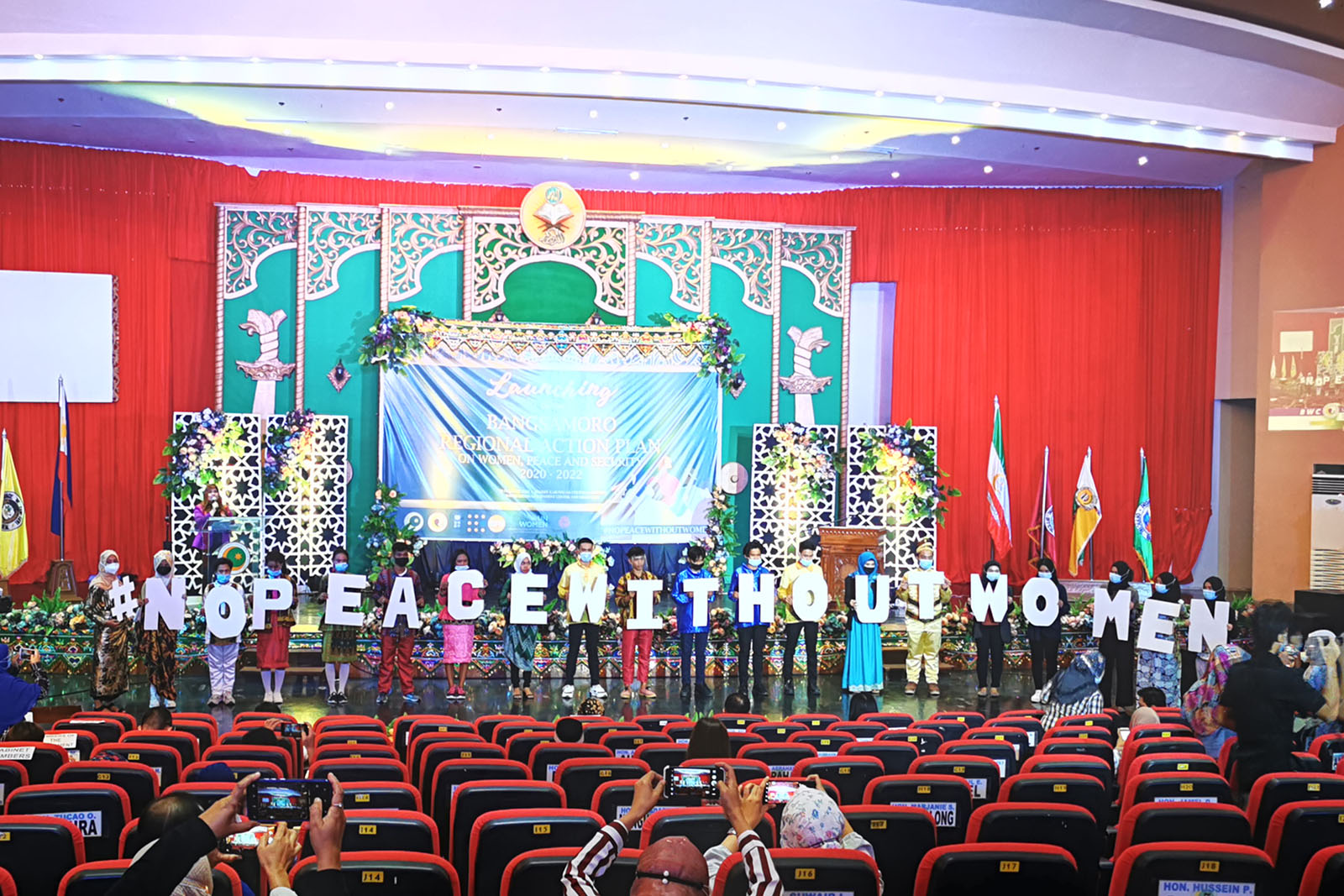 Women advocates in the Bangsamoro Autonomous Region in Muslim Mindanao laud the passage of Senate Bill 1371 or the ÒGirls Not Brides Act.Ó MindaNews photo by FERDINANDH CABRERA
Women advocates in the Bangsamoro Autonomous Region in Muslim Mindanao laud the passage of Senate Bill 1371 or the ÒGirls Not Brides Act.Ó MindaNews photo by FERDINANDH CABRERA
COTABATO CITY (MindaNews / 10 November) – Advocates against forced, child and early marriage in the Bangsamoro Autonomous Region in Muslim Mindanao (BARMM), where the practice is prevalent, lauded the passage of Senate Bill 1371 or the “Girls Not Brides Act.”
Suwaira Abdulmaula, one of the lead convenors of United Youth of the Philippines-Women, Inc. (UnYPhil Women) in Maguindanao, hailed the Senate for unanimously approving the bill that seeks to end child marriage in the country.
In the BARMM, Abdulmaula noted that they have monitored many cases of forced marriage especially in far-flung places, which she blamed on poverty.
“Mostly, the girl belongs to a poor family and her parents agree to a forced marriage with a man with a better financial standing so her family will have one less burden,” she said in Filipino.
UnYPhil-Women is currently handling a case of a 16-year-old wife who recently married a 60-year-old man in the region. The girl was allegedly maltreated by her husband.
Abdulmaula said that in some cases, forging child marriage is simply protecting the “Maratabat” of the clan, especially if the parents see young boys and girls holding hands or dating.
The practice of forced or child marriage must be stopped since it can endanger the life of the girl if she gets pregnant at an early age, as well as that of the baby, she added.
The “Girls Not Brides Act” passed the Senate on Monday. Senator Risa Hontiveros, chairperson the Senate Committee on Women, Children, Family Relations and Gender Equality, filed the bill last March.
The Philippines is a signatory country to the United Nation’s Sustainable Development Goal to end child, early and forced marriages by 2030.
A policy brief by the United Nations Population Fund said one in six Filipino girls marry before they turn 18, citing an analysis by the population commission that such is both a result and cause of “the perpetuation of a cycle of gendered poverty.”
The UN Children’s Fund or UNICEF has also reported that the Philippines is 12th globally on the most number of child marriage cases, with around 726,000 child brides in 2017.
Many consequences are bound for victims of child marriages where adolescent mothers from ages 15 to 19 are twice as likely to die from pregnancy, as well as undergo child complications.
Children of teenage mothers are also at “greater risk” of stunting and being underweight, and mothers are also likely to drop out of school.
In 2017, the Philippine National Demographic and Health Survey showed that 26.4% of child brides were, most importantly, victims of physical, sexual or emotional violence.
There is also control over sexuality, custom and tradition, and security, where it said poverty resulting from natural disasters or armed conflicts push parents to resort to child marriage for survival.
“In many cases, in the eyes of these parents, marrying their daughters even under 18 is a way to secure a better future for their daughters,” the study added. (Ferdinandh B. Cabrera / MindaNews)
